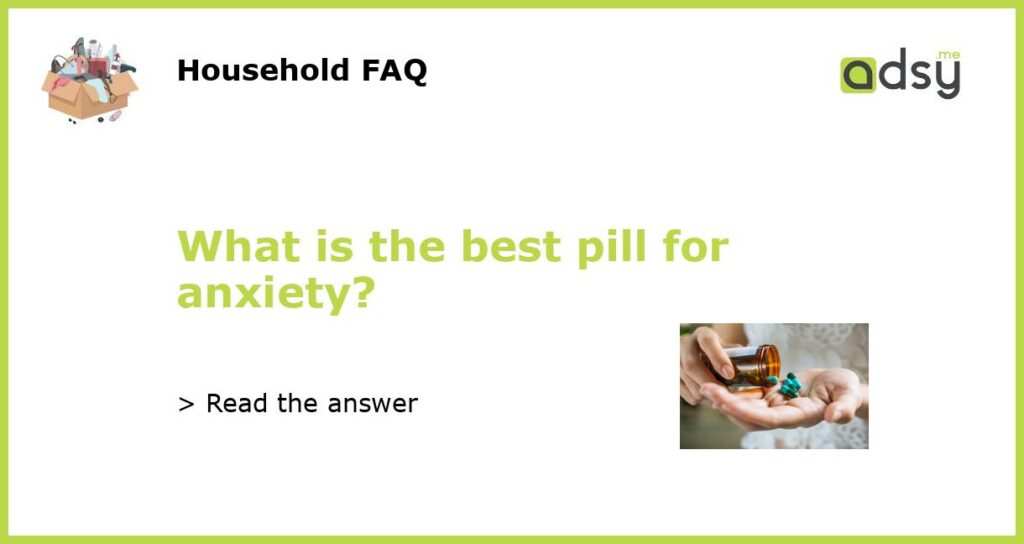Anxiety: Understanding the Need for Medication
Anxiety is a common mental health disorder that affects millions of people worldwide. It can manifest as excessive worry, fear, or nervousness, and can significantly impact one’s quality of life. While there are various treatment options available, including therapy and lifestyle changes, medication is often recommended for those with moderate to severe symptoms. In this article, we will explore the best pills for anxiety and their effectiveness in managing this condition.
Selective Serotonin Reuptake Inhibitors (SSRIs)
One of the most commonly prescribed medications for anxiety is a class of antidepressants known as selective serotonin reuptake inhibitors (SSRIs). These medications work by increasing serotonin levels in the brain, which helps regulate mood and reduce anxiety. Popular SSRIs include escitalopram (Lexapro), fluoxetine (Prozac), and sertraline (Zoloft). They are generally well-tolerated and have fewer side effects compared to older antidepressants.
Benzodiazepines
Benzodiazepines are another class of medication commonly used to treat anxiety. They work by enhancing the effect of a neurotransmitter called gamma-aminobutyric acid (GABA), which helps reduce anxiety and promote relaxation. Examples of benzodiazepines include alprazolam (Xanax), diazepam (Valium), and lorazepam (Ativan). While they can be effective in providing short-term relief, they are generally prescribed for shorter durations due to their potential for dependence and withdrawal symptoms.
Buspirone
Buspirone is an anti-anxiety medication that works differently than benzodiazepines and SSRIs. It acts on serotonin and dopamine receptors in the brain, helping to regulate mood and reduce anxiety. Unlike benzodiazepines, buspirone is not associated with dependence or withdrawal symptoms, making it a safer option for long-term treatment. However, it may take several weeks for the full effects of buspirone to be felt.
Beta-Blockers
Beta-blockers are a class of medication primarily used to treat high blood pressure and heart conditions. However, they can also be helpful in managing the physical symptoms of anxiety, such as rapid heartbeat, trembling, and sweating. Beta-blockers work by blocking the effects of adrenaline, thus reducing the body’s physical response to stress. Popular beta-blockers used for anxiety include propranolol (Inderal) and atenolol (Tenormin).
Other Options and Considerations
While the aforementioned medications are commonly prescribed for anxiety, it is important to note that individual responses may vary. Some individuals may require a combination of medications or may respond better to alternative options. Additionally, it is crucial to consult with a qualified healthcare professional before starting any medication to discuss potential side effects, interactions with other medications, and individual suitability.
It is also worth mentioning that medication should not be seen as the sole solution for managing anxiety. Therapy, such as cognitive-behavioral therapy (CBT), can be highly effective in teaching individuals coping mechanisms and addressing the underlying causes of anxiety. Taking care of one’s overall wellbeing through healthy lifestyle habits, such as regular exercise, sufficient sleep, and stress management, can also provide significant support in managing anxiety.
In conclusion, the best pills for anxiety differ based on individual needs and circumstances. SSRIs, benzodiazepines, buspirone, and beta-blockers are commonly prescribed medications for anxiety, each with their unique mechanisms of action and potential side effects. However, it is important to consult with a healthcare professional to determine the most suitable medication for each individual. Furthermore, medication should always be supplemented with therapy and lifestyle changes to promote holistic wellbeing and effective anxiety management.






